Ever felt that pang of worry about staying hydrated while planning a trail adventure? Trust me, you’re not alone. I know from firsthand experience how daunting it can be when dehydration hits.
You see, even slight dehydration can mess with your memory, mood, focus and reaction speed. That’s why I’ve decided to share with you three tried-and-true tips for mastering hydration on any trail outing based on my personal navigation through such experiences and thorough research.
If what you seek is an exhilarating, pain-free outdoor escapade that boosts your performance and keeps you in top health — then stick around!
Key Takeaways
- Staying hydrated while trail running is crucial for optimal performance and health.
- Dehydration can negatively impact physical and cognitive abilities, so it’s important to understand the effects of dehydration on your body.
- Estimating your water needs before a trail outing can help ensure you stay hydrated throughout the journey.
- Carrying water with hydration packs, vests, waist packs, or handheld bottles is essential for staying hydrated on the trails.
- Knowing where to refill your water and using filters to ensure safe drinking water are important strategies for maintaining hydration while hiking or running.
- Different weather conditions require different hydration strategies, such as drinking electrolyte-rich fluids in hot weather and increasing fluid intake at high elevations.
The Importance of Hydration on Trails

Trail running presents unique challenges that make proper hydration essential for optimal performance. Dehydration can significantly impact your physical and cognitive abilities, making it crucial to understand the importance of staying hydrated on the trails.
Don’t let dehydration hinder your trail running experience; follow these proven tips for mastering hydration on the trails.
Unique challenges of trail running
Trail running isn’t the same as road running. It takes special gear, training, and form cues. Staying hydrated is a big part of this sport. You see, trail running has its own set of challenges that make hydration all the more important for runners.
For one thing, it often means moving in wild areas where there’s no quick access to water. Plus, trails can be steep or uneven, making you work harder and sweat more. That makes you lose fluids faster than you might on a less tough route – so drinking enough is key! You may even need to drink extra water before a run if it’s going to last longer than 60 minutes.
Effects of dehydration on performance
Not having enough water in your body hurts your performance. Your reaction times slow down. You feel tired and find it hard to focus. If you lose 2% or more of your body’s water, endurance exercises like hiking become difficult.
This happens because there is less blood in your body and less sweat on your skin to cool you down. Your inside body heat goes up when this happens too! Even a small dip in the amount of water in your body impacts how well an athlete does their sport badly.
It can make concentration drop by 20% and reaction times slower!
Estimating your water needs
Knowing how much water you will need can be hard. Scaling the heights can change your needs for hydration. You must plan this out before your backpacking trip to stay healthy and comfy on your trail journey.
Your body may need more fluid than you think, especially in high places. Be sure to watch out for signs that show if you are not getting enough water or are drinking too much of it.
Comprehensive Guide on the Importance of Hydration on Trails
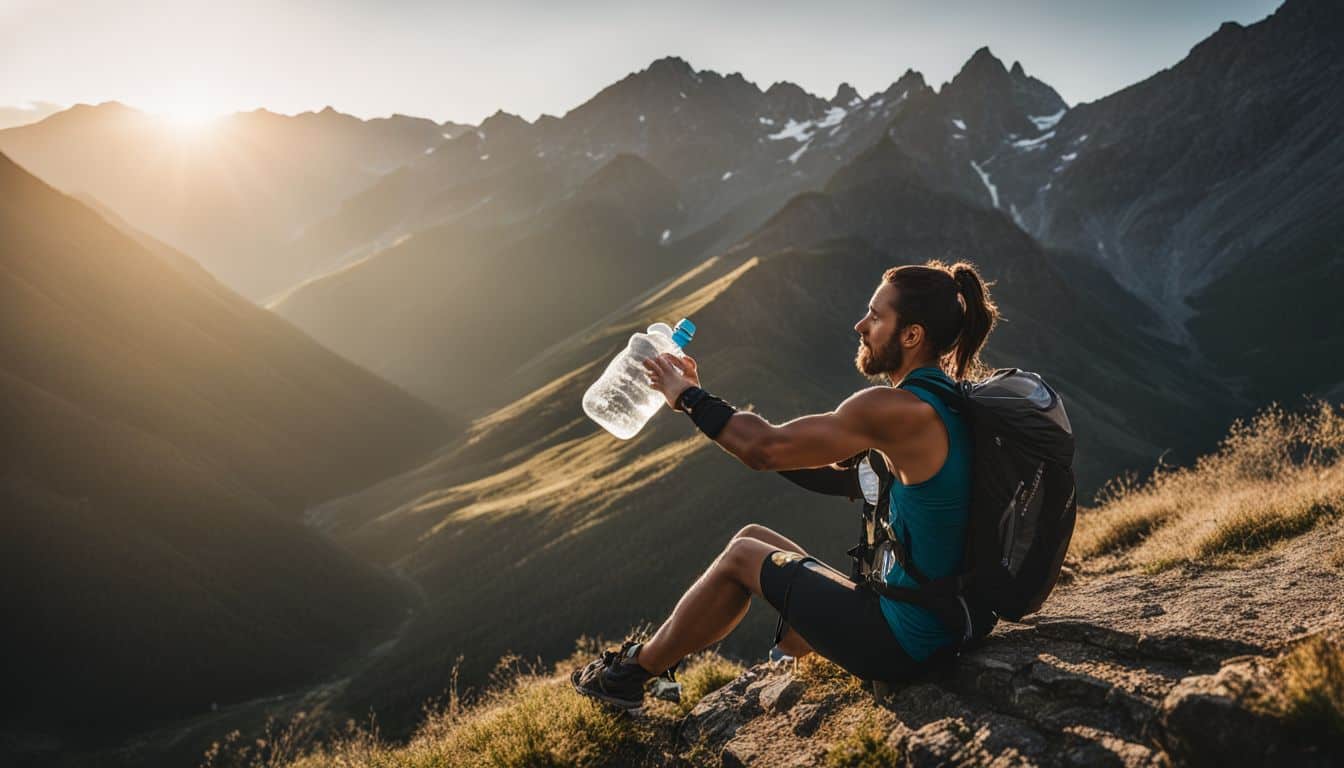
I found a comprehensive guide on the importance of hydration on trails that you might find helpful. In this guide, you’ll learn about the unique challenges of trail running and the effects of dehydration on your performance.
It also provides tips for estimating your water needs while out on the trail. This guide covers everything from carrying water during your run to different hydration strategies for hot weather, cold weather, and running at high elevations.
It also offers pre-run hydration tips, strategies for staying hydrated during your run, and post-run hydration advice for optimal recovery. You’ll even find information about different hydration options available and tips for preventing dehydration while hiking.
Check out the guide here: https://trailmothersgroup.org/guide/Importance-of-hydration-on-trails.
Hydration Strategies for Trail Runners
Stay hydrated on your trail runs by carrying water with you using hydration packs, vests, waist packs, or handheld bottles. Learn more about refilling options and water filters at [link].
Carrying water on a trail run
I always make sure to carry water when I go on a trail run. Staying hydrated is super important, especially when you’re out in nature. Here are some tips for carrying water on a trail run:
- Hydration packs and vests: These are great options for carrying water while running. They have pockets for water reservoirs that you can easily sip from as you go. Plus, they usually have additional storage space for snacks or other essentials.
- Handheld bottles: If you prefer something smaller and more portable, handheld bottles are a good choice. They fit right in your hand and have an easy-to-use spout for drinking.
- Waist packs: Another option is to use a waist pack that has water bottle holders. This keeps your hands free and the weight of the water evenly distributed around your waist.
- Refilling options: Depending on the length of your trail run, you might need to refill your water supply. Look for places along the route where you can access clean drinking water or consider carrying a water filter to purify water from natural sources.
Hydration packs, vests, waist packs, and handheld bottles
Staying hydrated while hiking is essential. Here are some options for keeping water easily accessible:
- Hydration packs: These backpack-style packs have built-in water reservoirs and a hose for drinking without stopping.
- Hydration vests: Similar to hydration packs, but with a snug fit that prevents bouncing during runs.
- Waist packs: Smaller and more lightweight than hydration packs, these attach around your waist and hold water bottles.
- Handheld bottles: Perfect for shorter runs or hikes, these are lightweight and easy to carry in your hand.
Refilling options and water filters
Water is essential for staying hydrated while hiking. Here are some tips for refilling your water and using filters to ensure safe drinking water:
- Carry a lightweight water filter: A portable water filter is a must-have for trail runners. It helps remove harmful bacteria and parasites from natural water sources, allowing you to drink safely.
- Use a hydration pack with a built-in filter: Hydration packs equipped with filters are convenient as they allow you to drink directly from natural water sources without the need for additional equipment.
- Bring purification tablets or drops: Purification tablets or drops are an easy way to disinfect water on the go. They kill bacteria and viruses, making the water safe to drink.
- Look for reliable refilling stations: Many hiking trails have designated refill points where you can access clean drinking water. Research the trail beforehand to identify these locations.
- Plan your route around reliable water sources: Before heading out on a hike, find out where you can access clean water along your route. This will help you stay hydrated without relying solely on carrying large amounts of water.
Hydration Tips for Different Weather Conditions
Stay hydrated during hot weather by drinking plenty of water and electrolyte-rich fluids to replace the fluids lost through sweat. In colder weather, it’s important to continue hydrating, even if you don’t feel as thirsty.
And when trail running at higher elevations, increase your fluid intake to compensate for the dryer air and increased breathing rate.
Hot weather strategies
Staying hydrated is crucial when hiking in hot weather. It’s important to drink water before starting your hike and continue drinking throughout the day. Make sure to bring enough water with you and consider using a hydration pack or bottle that’s easy to carry.
If you’re sweating a lot, it’s also important to replenish electrolytes by drinking beverages that contain them, like sports drinks or coconut water. Be aware of the symptoms of dehydration, such as feeling thirsty, having dark urine, or experiencing dizziness or fatigue.
If you notice any of these signs, take a break and drink more fluids to avoid heat-related illnesses like heatstroke or heat exhaustion.
Cold weather strategies
In cold weather, it’s important to have strategies to stay hydrated while hiking. Frostbite prevention and hypothermia prevention are key concerns in low temperatures. To keep fluid levels up, it’s advisable to drink warm fluids instead of cold water.
Using cold weather hydration gear can help prevent your fluids from freezing. Endurance training in the cold requires specific tips for maintaining hydration. Winter dehydration is a risk, so remember to prioritize staying properly hydrated even in colder climates.
Trail running at elevation strategies
When trail running at elevation, it’s important to have specific strategies to stay hydrated. Running at high altitude increases the demand for oxygen and puts extra stress on your body.
This means you need to drink more water to maintain proper hydration levels. To avoid dehydration, make sure to drink water regularly throughout your run, even if you don’t feel thirsty.
It’s also a good idea to carry a hydration pack or bottle with you so you can easily access fluids while on the trail. Additionally, be aware of signs of overhydration and adjust your fluid intake accordingly.
Pre-Run Hydration Tips
Stay hydrated before your run by drinking an adequate amount of fluids, as proper hydration is crucial for optimal performance and avoiding the risks of dehydration.
The importance of adequate fluid intake before a run
Adequate fluid intake before a run is really important for me. It helps me have a sustained and fast-paced hike on the trail. To make sure I’m properly hydrated, it’s recommended that I drink 17-20 fl.
oz of fluid before my run to pre-hydrate. This helps me perform at my best and avoid dehydration or hyponatremia, which can cause symptoms like dizziness, fatigue, and poor hiking performance.
So, I always make sure to drink enough fluids before hitting the trail for optimal performance.
Hydration strategies before intense workouts and races
Proper hydration is crucial for hiking enthusiasts like us, especially before intense workouts or races. Here are some strategies to help you stay hydrated and perform at your best:
- Start hydrating early: Begin increasing your water intake at least 24 hours before your workout or race. This will ensure that you start with a full tank of hydration.
- Drink electrolyte-rich fluids: Along with water, incorporate fluids that contain electrolytes such as sports drinks or coconut water. These can help replenish the minerals lost through sweat and keep your body balanced.
- Monitor urine color: Check the color of your urine as a quick indicator of hydration levels. Ideally, it should be pale yellow to clear. If it’s dark yellow, it may be a sign that you need to drink more fluids.
Hydration Strategies During Trail Running
Stay ahead of dehydration during your trail runs by consistently sipping on fluids every 15-20 minutes, aiming for about 5-10 ounces each time to maintain optimal hydration levels.
Recommended fluid replacement during exercise
During exercise, it is important to replace the fluids that you lose through sweating. To stay hydrated, I recommend drinking 16-24 fl. oz of fluid for every pound lost while running.
This helps maintain your hydration levels and prevents dehydration. Remember not to drink excessive amounts of fluid as it can lead to hyponatremia, a condition where the sodium levels in your body are too low.
So, make sure to carry water or use hydration packs during trail runs to quickly replenish lost fluids. Personalized hydration strategies are key for optimizing performance and staying safe on the trails!
Electrolyte balance and its role in hydration
Maintaining a proper balance of electrolytes is really important for staying hydrated while trail running. Electrolytes are minerals like sodium, potassium, and magnesium that help regulate fluid levels in our bodies.
When we sweat during exercise, we lose these electrolytes along with water. So, it’s crucial to replenish them to keep our hydration levels in check. Electrolyte drinks or supplements can be helpful in providing the right balance of minerals.
They not only replace lost fluids but also support better fluid retention. By paying attention to your electrolyte intake, you can prevent muscle cramps, physical exhaustion, and other problems associated with dehydration during trail runs.
Post-Run Hydration Tips
After a trail run, it’s crucial to prioritize your post-run hydration to aid in muscle recovery and replenish lost fluids.
Importance of rehydration for muscle recovery
Proper hydration is crucial for muscle recovery after a hike or trail run. When you exercise, especially in hot weather, your body loses fluids through sweat. This can lead to dehydration, which can increase muscle soreness and delay the recovery process.
By rehydrating properly after your hike or run, you can help reduce muscle soreness and promote faster healing of any injuries. So remember to drink plenty of water or electrolyte-rich beverages after your outdoor adventures to support your muscles’ recovery and optimize your overall performance.
Post-run nutrition tips for optimal hydration and recovery
I want to share some important tips on what to eat and drink after a hike to help you recover and stay hydrated. Here they are:
- Include protein in your post – hike meal or snack. Protein helps repair your muscles and reduces soreness. Good sources of protein include lean meats, poultry, fish, beans, tofu, and Greek yogurt.
- Replenish fluids by drinking plenty of water or electrolyte-rich drinks after your hike. Aim to drink 16-24 fluid ounces for every pound you lost while hiking.
- Eat foods rich in carbohydrates to replenish energy stores. Carbohydrates provide fuel for your body and can be found in foods like whole grains, fruits, vegetables, and legumes.
Hydration Options for Trail Runners
Trail runners have a variety of hydration options to choose from, including water alone or electrolyte hydration drinks for optimal performance and recovery.
Water alone or electrolyte hydration options?
When it comes to hydration options for trail runners, there are two main choices: water alone or electrolyte hydration options. Water is always a reliable choice and can help quench your thirst during long runs.
However, electrolyte hydration options have the added benefit of replenishing essential minerals that are lost through sweat. These options can include sports drinks, milk, smoothies, juice, or even water-flavor packets.
It’s important to remember that staying hydrated goes beyond just drinking water and incorporating other fluids can be beneficial. Ultimately, the choice between water alone or electrolyte hydration options depends on your personal preferences and needs during ultra marathons.
Sports drinks that enhance performance and recovery
Sports drinks can be a great option for hikers like us who want to enhance our performance and recover effectively. Here are some benefits of sports drinks:
- Replenish electrolytes: Sports drinks contain electrolytes like sodium, potassium, and magnesium that are lost through sweating. By replenishing these electrolytes, sports drinks help maintain the balance in our bodies.
- Provide carbohydrates: Hiking requires energy, and sports drinks provide a source of carbohydrates that can be quickly absorbed by our bodies. These carbs help fuel our muscles and keep us going on the trails.
- Enhance hydration: Sports drinks are designed to hydrate more effectively than plain water. They not only replace lost fluids but also promote faster absorption, ensuring we stay properly hydrated during our hikes.
- Boost performance: The combination of electrolytes and carbohydrates in sports drinks can improve our endurance and overall performance on the trails. They provide the necessary fuel to keep us going strong.
- Aid in recovery: After a challenging hike, it’s important to replenish what we’ve lost. Sports drinks help with muscle recovery by providing the necessary nutrients to repair and rebuild.
Tips for Preventing Dehydration While Hiking
Prevent dehydration while hiking by drinking water before hitting the trail, avoiding alcohol prior to a hike, carrying easily accessible food and water, drinking water before feeling thirsty, and staying hydrated after hiking.
Drink water before hitting the trail
Before hitting the trail, it’s important to make sure you drink water. This simple step can help prevent dehydration while hiking. Drinking water slowly over several hours before your hike is recommended to keep yourself hydrated.
It’s also essential to avoid alcohol before heading out on a hike, as it can lead to further dehydration. Make sure to carry food and water with you on the hike and keep them easily accessible in case you need them.
Staying properly hydrated on the trail will help you feel more energized and avoid feeling lethargic or weak. So remember, drink water before hitting the trail for a safe and enjoyable hiking experience!
Avoid alcohol prior to a hike
Before going on a hike, it’s important to avoid drinking alcohol. Alcohol can actually make you dehydrated, which is not good for your body when you’re hiking. Even having alcohol the night before your hike can cause dehydration.
So, to stay properly hydrated and enjoy your hike, it’s best to skip the alcohol before hitting the trails.
Carry food and water and make them easily accessible
Carrying food and water is crucial for staying hydrated while hiking. Here are some tips to keep them easily accessible:
- Pack a backpack with plenty of pockets: A backpack with multiple compartments allows you to store snacks and water bottles separately, making it easier to reach for them when needed.
- Use a hydration bladder or water bottle holder: Invest in a backpack with a built-in hydration bladder or attach a water bottle holder to the straps of your backpack. This way, you can have quick access to water without having to stop and dig through your bag.
- Use an insulated water bottle: To keep your water cool and refreshing, choose an insulated water bottle that can maintain the temperature of your drink for hours.
- Pack lightweight snacks: Choose snacks that are easy to carry and consume on the go, such as energy bars, trail mix, or dried fruits. These provide a quick boost of energy and help replenish nutrients lost during your hike.
- Keep snacks within arm’s reach: Store your snacks in an accessible pocket or side compartment of your backpack so you can easily grab them without having to rummage through your entire bag.
Drink water before feeling thirsty
To stay properly hydrated while hiking, it’s important to drink water before you even start feeling thirsty. Waiting until you’re already thirsty means that your body is already dehydrated.
To prevent this, make a habit of drinking small amounts of water frequently throughout your hike instead of chugging a large amount all at once. By staying ahead of thirst and consistently sipping on water, you can maintain proper hydration levels and have a safer and more enjoyable hiking experience on the trails.
Remember to also consider other hydrating beverages like juice or electrolyte drinks to replenish essential nutrients lost through sweat during intense hikes or hot weather conditions.
Stay hydrated after hiking
After a long and strenuous hike, it’s important to stay hydrated for your comfort and overall health. Dehydration can happen even after you finish hiking, so make sure to replenish your fluids.
Aim to drink up to 300ml of water every 20 minutes after your hike. It’s also important to carry enough water and electrolytes while hiking to prevent dehydration in the first place.
So remember, don’t forget about hydration even after you’ve finished your hike!
Conclusion on Importance Of Hydration On Trails
In conclusion, staying hydrated on the trails is vital for your comfort, health, and performance. Remember to drink enough water before, during, and after your hikes or runs. Use hydration packs or lightweight water-carrying options to ensure you have access to water wherever you go.
By following these simple tips, you can master the trails and have an enjoyable outdoor experience. Stay hydrated and happy hiking!
FAQs on Importance Of Hydration On Trails
1. Why is hydration important while hiking on trails?
Staying hydrated while hiking on trails is important to prevent dehydration, maintain energy levels, regulate body temperature, and prevent heat-related illnesses.
2. How much water should I drink while hiking on trails?
It is recommended to drink at least 8-10 ounces of water every 20-30 minutes while hiking on trails to stay adequately hydrated.
3. Are there any signs of dehydration I should watch out for while hiking?
Signs of dehydration to watch out for while hiking include excessive thirst, dry mouth or throat, dark urine, dizziness, fatigue, and muscle cramps.
4. Can I rely on natural water sources such as rivers or streams for hydration during hikes?
While natural water sources can be an option for hydration during hikes, it’s crucial to purify the water before consuming it to avoid potential contaminants or harmful bacteria.
5. Are there any tips for staying effectively hydrated during long hikes on the trail?
Some tips for staying effectively hydrated during long hikes on the trail include carrying a sufficient amount of water with you, drinking regularly rather than waiting until you’re thirsty, and considering electrolyte-replenishing drinks in addition to plain water.

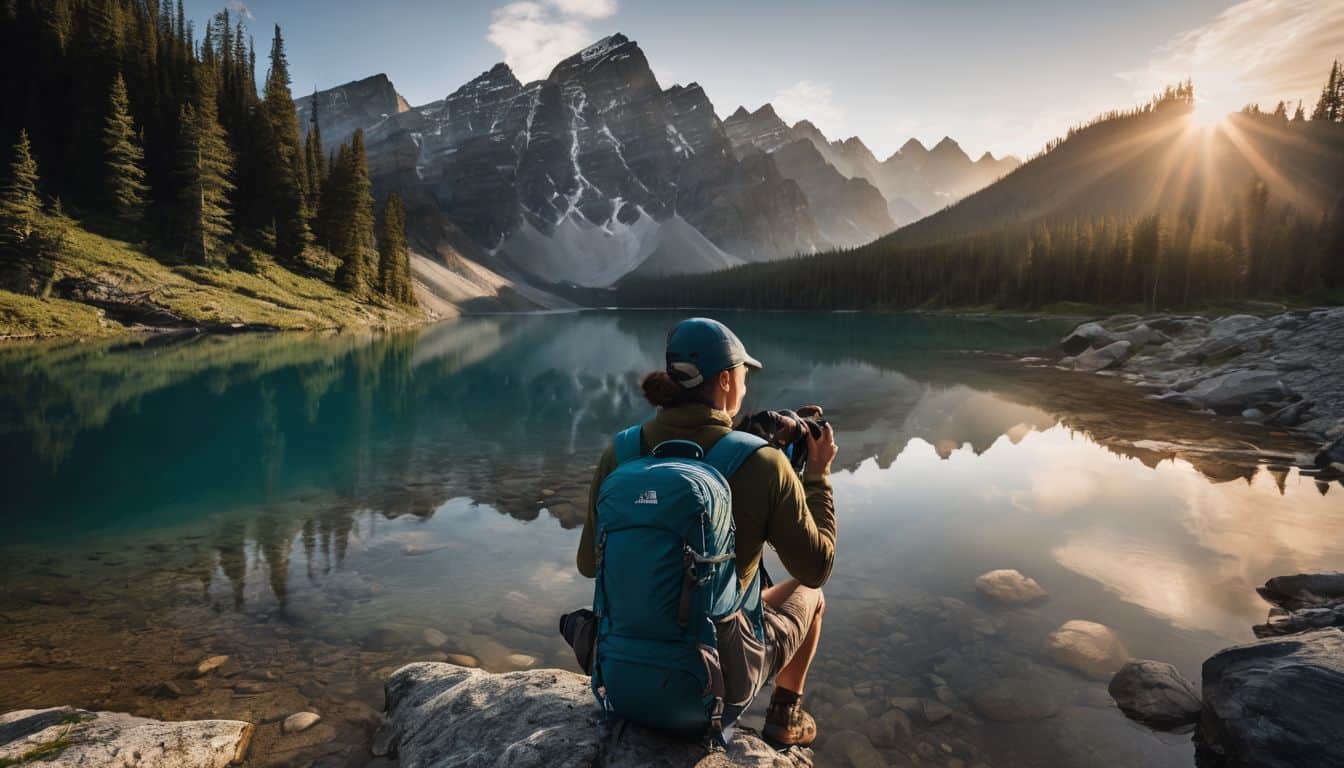
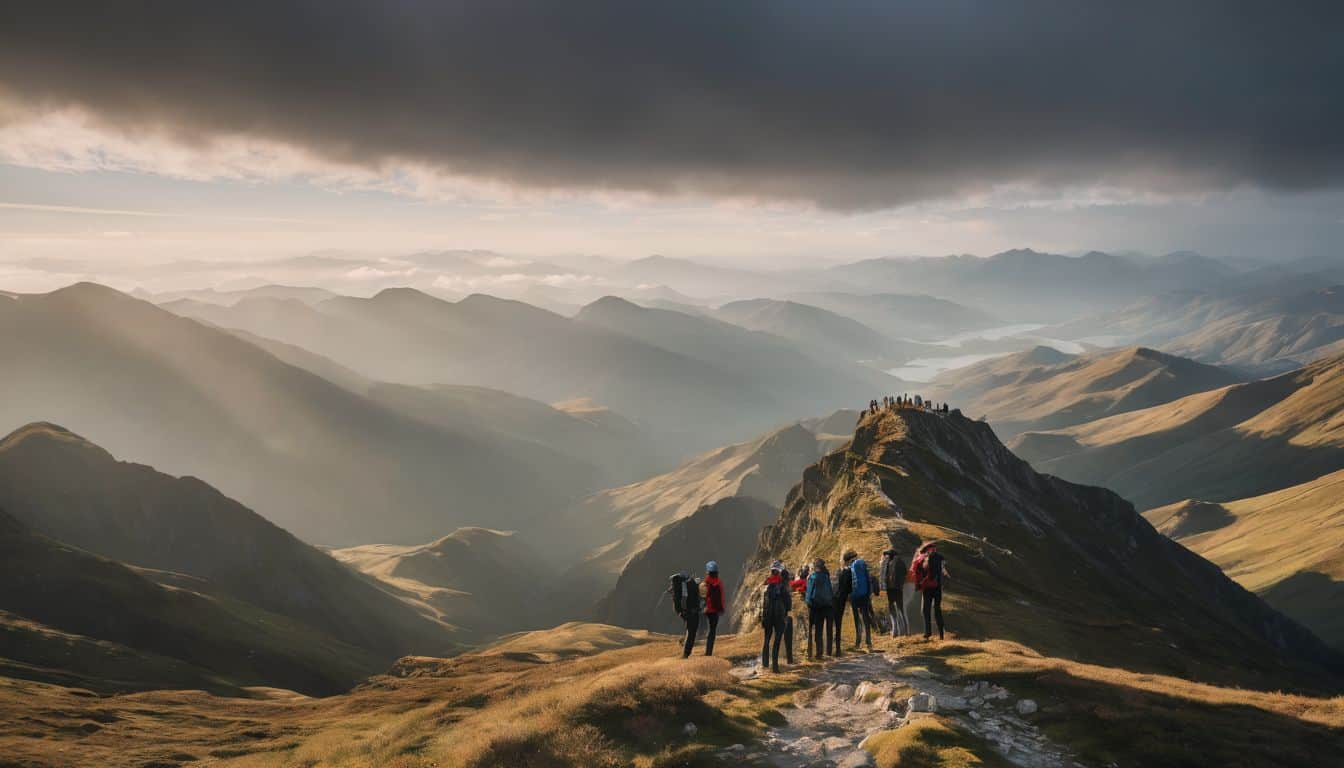
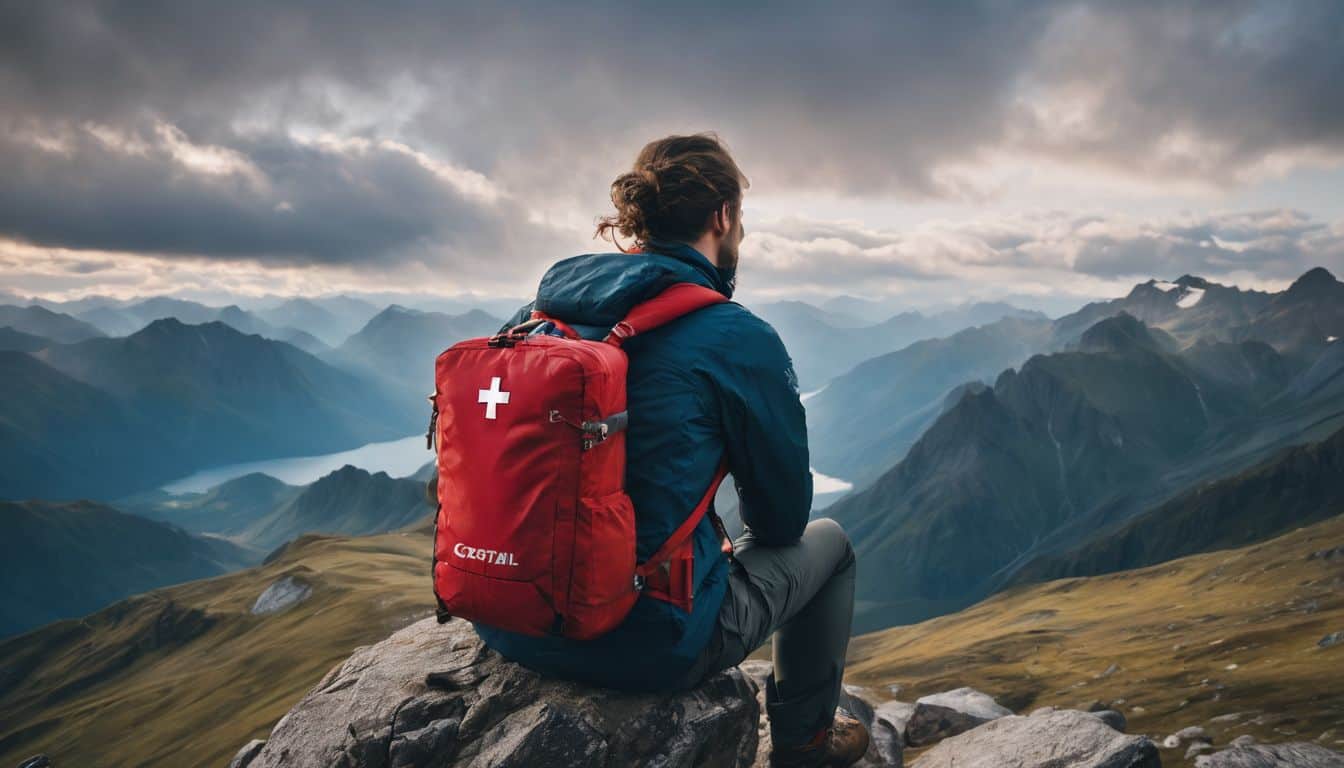
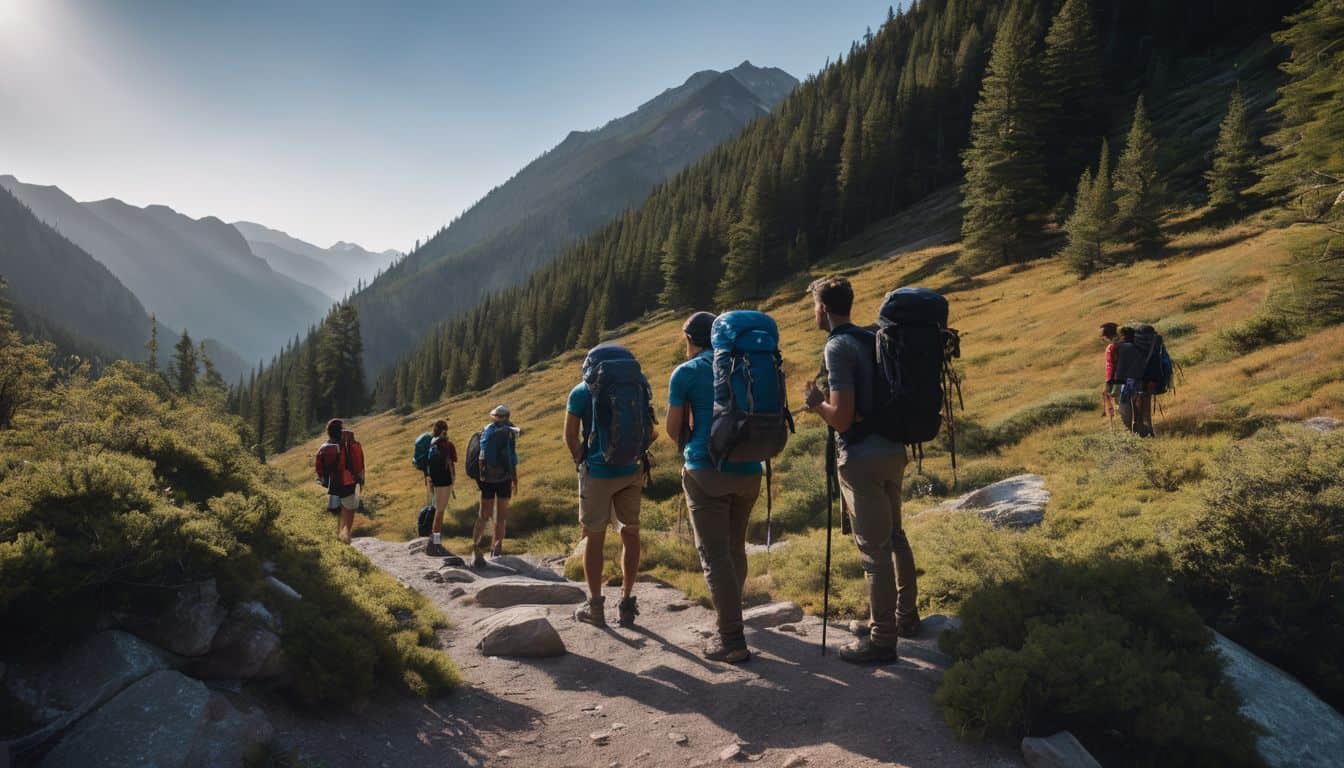
Leave a Reply